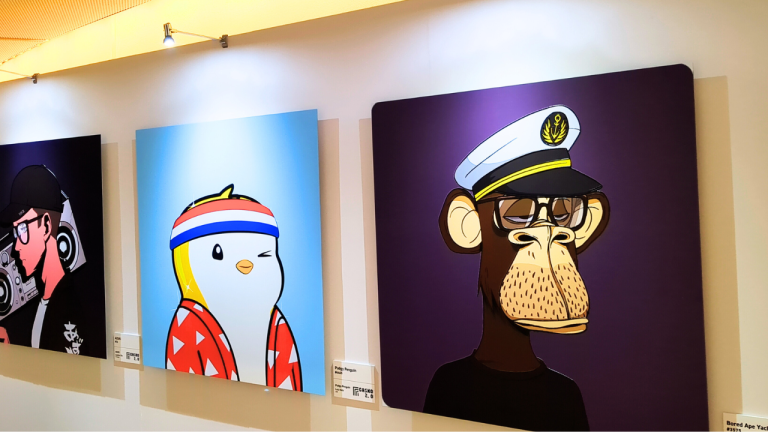‘Community-Based IP’ — Yuga Labs CEO Describes Web3 Evolution of Licensing to Japanese Government Official

In a recent “fireside chat” with the deputy director of the Web3.0 Policy Office of Japan’s Ministry of Economy, Trade, and Industry, Yuga Labs CEO Daniel Alegre noted: “We’re not even in the first inning” of where Web3 “evolution” is going to go. During the interview with the politician, Alegre described new models of IP (intellectual property) that transcend national borders and break down barriers traditional IP models impose.
Bored Apes: A New Paradigm for IP
CEO of Yuga Labs Daniel Alegre recently sat down with deputy director of the Web3.0 Policy Office at Japan’s Ministry of Economy, Trade, and Industry to discuss the future of Web3 and product licensing, describing a new model of “community-based IP.”
Speaking to Waka Itagaki about the power of the Bored Ape Yacht Club global community at the Webx conference on Tuesday, Alegre described: “Whether it’s a Bored Ape brewing company, that the team introduced me to yesterday, or whether it’s new artists that want to create [gaming content] on their other side platform … it’s really creating and connecting culture on the blockchain, but at a global level.”
The executive, formerly COO of Activision Blizzard, went on to note that “Web3 brings creators and consumers and communities together, and they build these brands together,” emphasizing, “It’s a fundamental rethink of IP and IP rights.” Alegre detailed:
In a normal media environment, if you own IP, you license it very exclusively and for a very finite use case … when you buy a Bored Ape NFT, we are giving you an unlimited license to do with that IP what you want … If you want to start a restaurant chain, if you want to have a brewing company, if you want to create t-shirts that you want to sell, it enables that.
Alegre didn’t directly address one portion of Itagaki’s prompt when she asked “How are you planning to align with the government’s regulation?” He did, however, suggest a way for regulators to view Web3, noting: “And this is where I love your point of view from a government perspective — how do you think about enablement so that more people can actually leverage what Web3 can bring to bear.”
Animoca Rep and Other Speakers Share Similar Views on New, Decentralized Models of Business and Finance
Similar to Alegre’s enthusiasm for fresh ways of viewing intellectual property, later the same day, Evan Auyang of Animoca Brands also described a new way to look at competition in the marketplace, noting:
The whole point about this ecosystem … is that we’re trying to see if we can grow the pie bigger rather than dominating it ourselves, which is more Web2 thinking. If the pie grows bigger, then we will benefit … on the assets that we have at the same time.
In another talk at Webx, Ken Deeter, partner at crypto-focused VC fund Electric Capital in the United States, explained he was interested in defi as an extension of the Bitcoin ethos, which arose from a mistrust of central banks and traditional monetary policy. Like with the evolution in perspective on IP described by Alegre, Deeter and others at Webx expressed interest in setting up new models.
What do you think? Is Web3 leading a positive evolution away from outdated, coercive models of business, law, and finance, or is more regulation needed? Let us know in the comments section below.